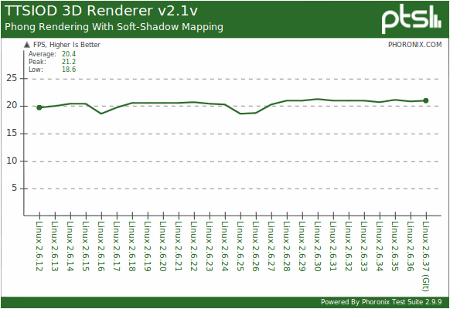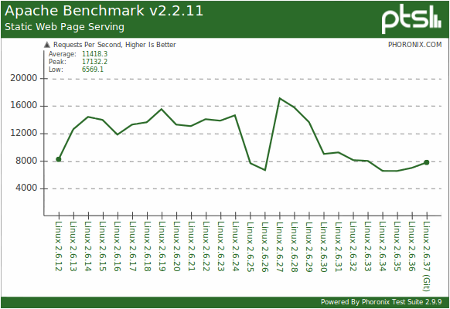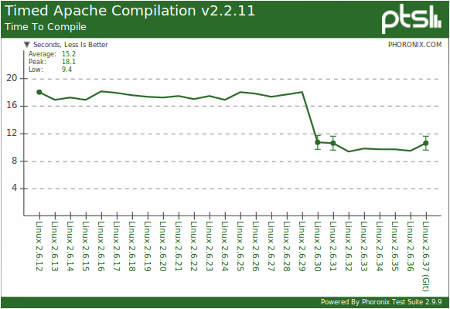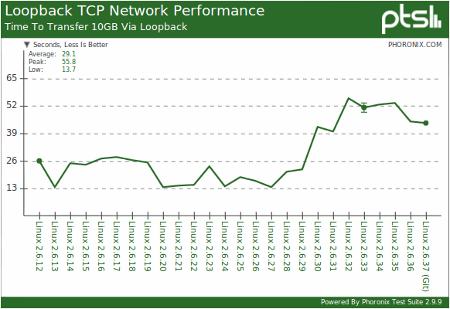Linux kernel performance is as good as ever, benchmarks show
Nov 5, 2010 — by Eric Brown — from the LinuxDevices Archive — 3 viewsPhoronix has published the results of benchmarks performed on 26 Linux kernels dating back five years, from Linux 2.6.12 to a pre-release version of the upcoming Linux 2.6.37. Despite the addition of numerous features over the years, the results show remarkable consistency.
With last month's release of Linux 2.6.36, the kernel saw a reduction in net lines of code for the first time in years. The kernel received a trimming to address concerns about "bloat" that have been raised in recent years by Linux creator Linus Torvalds.
Yet despite feature creep in recent years, the Linux kernel's performance has remained remarkably sustained, according to Phoronix. The publication applied a series of benchmarks from its Phoronix Test Suite on 26 kernels ranging from the circa-2005 Linux 2.6.32 to a pre-release version of the upcoming 2.6.37.
According to the publication, the general consensus among the testers prior to the benchmark results was that Linux would have shown more of a performance slowdown over the years. Yet, most of the results looked like the 3D renderer test shown below.

Most of the Phoronix benchmark results mirrored this flat-line chart from the entirely CPU-based TTSIOD 3D renderer test
Source: Phoronix
(Click to enlarge)

What a wild ride it's been — Apache web-page serving on Linux kernels over the years
Source: Phoronix
(Click to enlarge)

Phoronix'
results for compiling Apache show kernel performance improvements over the years.Source: Phoronix
(Click to enlarge)
"Where the Linux kernel is left being slower at this point is with GnuPG, Loopback TCP Network Performance, IOzone, and in other areas on a more miniscule scale," the story continued. "For many of the application benchmarks the Linux kernel advancements caused little performance change, at least for a multi-core x86_64 system running in a virtual machine."

One of the largest drops in performance came on this Loopback TCP networking test, though recent kernels have shown an uptick.
Source: Phoronix
(Click to enlarge)
Further information
The Phoronix story reporting on its Linux kernel benchmarks may be found here.
This article was originally published on LinuxDevices.com and has been donated to the open source community by QuinStreet Inc. Please visit LinuxToday.com for up-to-date news and articles about Linux and open source.